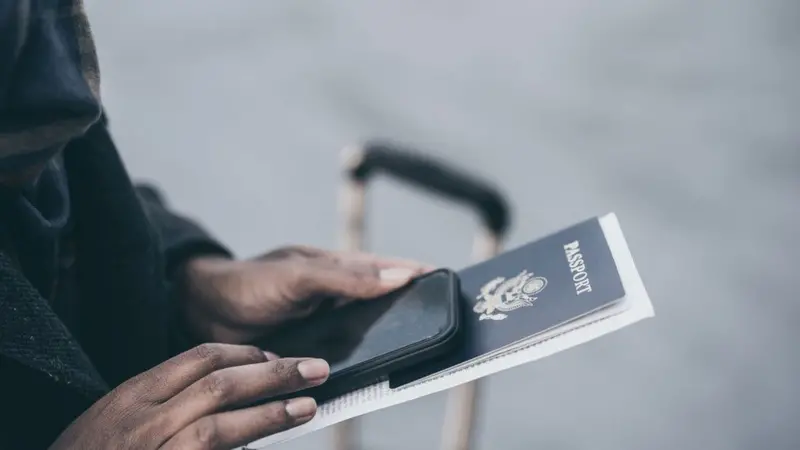Source: Africa Publicity
Every year, Africans lose millions of euros in rejected European visa applications. The Schengen visa process, in particular, has become an expensive and often fruitless endeavor for many African citizens seeking to travel to Europe for education, business, tourism, or family visits. The financial burden—comprising visa fees, travel costs for appointments, courier charges, and even non-refundable bookings—falls disproportionately on applicants from African countries, many of whom are denied entry without clear justification. This issue not only highlights systemic inequality but also reflects a need for African governments to take strategic action to protect their citizens and assert their rightful place in global mobility systems.
Understanding the Scope of the Problem
According to a recent report published by LAGO Collective, a London-based research and arts organization, Africans in 2024 alone lost in total 60 million euros ($67.5 million) in rejected Schengen visa fees. The London-based research and arts organization has been monitoring data on European short-term visas since 2022 and says Africa is the continent worst affected by the cost of visa rejections.
Highest Fees
Accordingly, Africans pay some of the highest visa fees globally, and they suffer some of the highest rejection rates.
Founder of LAGO Collective, Marta Foresti says “The poorest countries in the world pay the richest countries in the world money for not getting visas.”
She says “As in 2023, the poorer the country of application, the higher the rejection rates.”
According to Foresti, “African countries are disproportionately affected with rejection rates as high as 40-50% for countries like Ghana, Senegal and Nigeria,” adding that this proves “inbuilt discrimination and bias” in the process.
UK vs Schengen Visas
Schengen visa rejections usually get the most attention due to the large number of countries in the Schengen Area.
But African citizens applying for United Kingdom (UK) visas have also been complaining of visa rejections despite the high application fees.
In July 2024, UK visa fees increased from £100 to £115 and then to £127 in April 2025. According to LAGO Collective, there was a 13.5% increase in the cost of rejected UK visas to £50.7 million ($68.8 million) in 2024.
European Commission’s Position
According to the European, it does not comment on individual visa rejection cases but European Union (EU) law allows visa applicants to appeal negative decisions if they feel that the refusal was injustified.
The European Commission says “The reasons for refusals vary, and include for example the submission of false or forged supporting documents such as bank statements or civil status documents, and weak socio-economic ties to the country of residence and hence a heightened risk of irregular migration.”
Lack of Clear Explanation, Injustice
One thing that’s obvious is that often, these rejections come without transparent explanations, despite the payment of mandatory non-refundable fees.
This creates a troubling paradox: European countries benefit from visa revenues even when no visas are issued, while African citizens bear the cost and humiliation of repeated denials. The result is not only economic loss but also a sense of injustice that deepens the perception of unequal treatment and undermines diplomatic trust.
What African Governments Can Do:
Engage in Diplomatic Negotiations
African governments must use diplomatic channels to challenge visa policies that disproportionately affect their citizens. They can call for greater transparency in the visa process, including detailed explanations for rejections, faster appeal systems, and equal treatment in application assessments. Bilateral agreements could also include clauses that ensure fair treatment of visa applicants.
Push for Reciprocity in Visa Policies
While many European passport holders can travel to African countries with ease, the reverse is rarely true. African governments should revisit their visa waiver policies and demand reciprocity. By implementing stricter entry requirements for countries with high visa rejection rates for Africans, they can pressure those governments to reconsider their policies.
Invest in Regional Mobility and Opportunities
Many Africans seek European visas for education, trade, or tourism. African governments can reduce this dependency by investing in intra-African travel, education systems, and economic opportunities. The African Continental Free Trade Area (AfCFTA) and regional mobility frameworks should be accelerated to provide real alternatives to Europe-bound travel.
Educate and Support Applicants
Governments can help reduce unnecessary visa rejections by providing public information campaigns on how to prepare stronger applications. Through embassies, immigration offices, or online platforms, citizens can be guided on documentation, interviews, and avoiding fraudulent agents. Legal aid or visa advisory services can also protect applicants from avoidable rejections.
Collect and Publish Data on Visa Losses
African governments and civil society should work together to gather data on how much their citizens are losing annually to rejected visas. Publicizing this information will build public awareness and increase pressure on European governments to act fairly. Data can also be used as a basis for negotiation or reform proposals at international forums.
Conclusion
The millions of euros lost annually by African citizens in failed European visa applications is not merely an issue of money—it is a matter of dignity, equity, and international respect.
African governments have a responsibility to act, not only to shield their citizens from exploitative processes but also to assert the continent’s rightful place in the global mobility system. Through diplomacy, policy reforms, regional investment, and public advocacy, Africa can shift the narrative and ensure that its people are no longer unfairly burdened by a system that too often denies them access without accountability.








